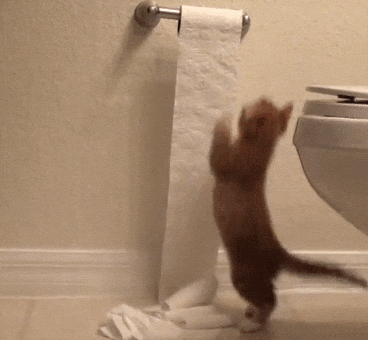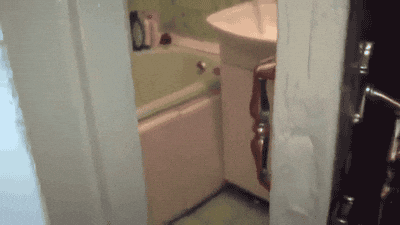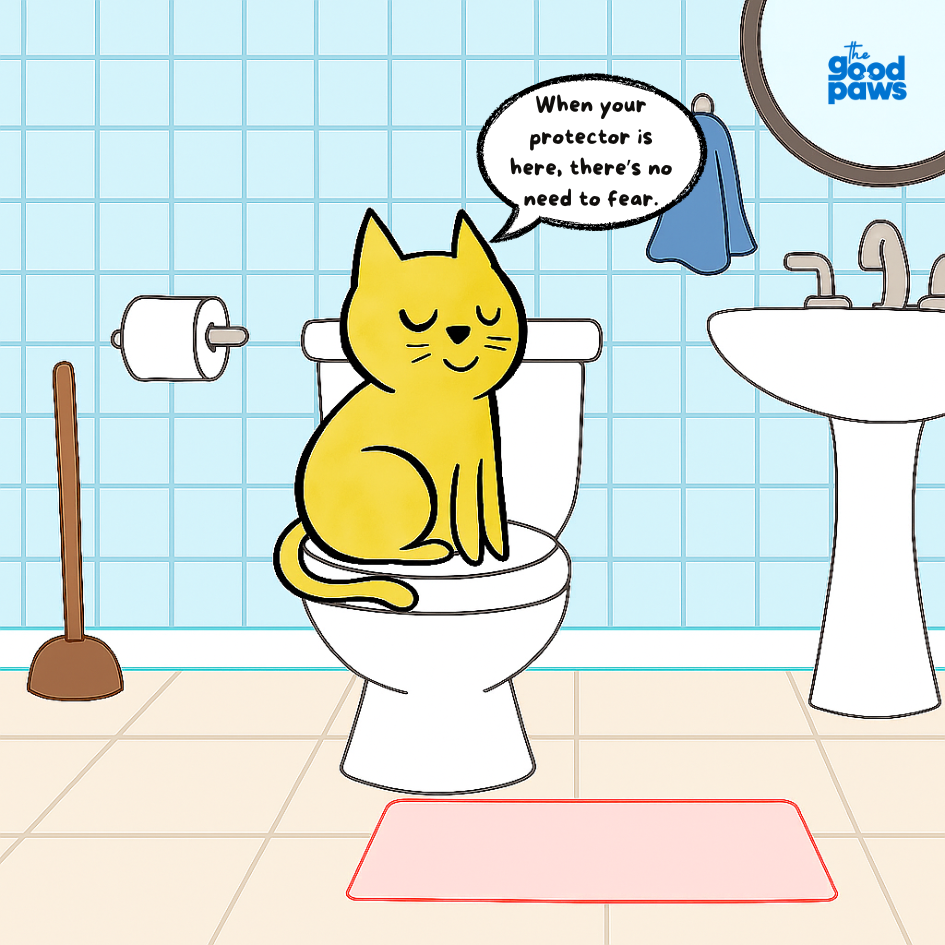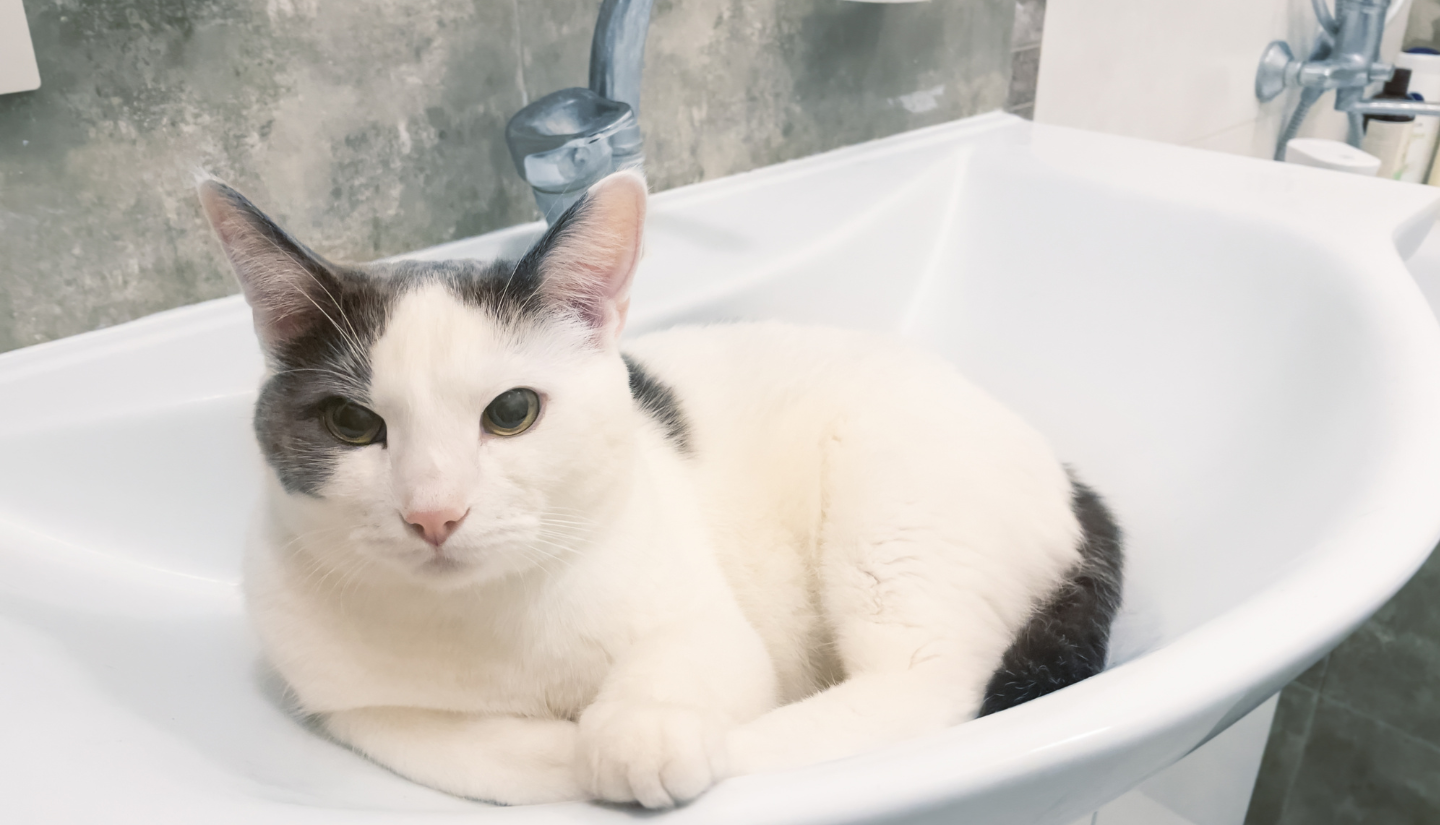You are about to step inside the bathroom and that’s when you hear it: the unmistakable sound of paws padding across your floor, followed by the gentle thud of a furry body settling just outside the bathroom door. Sometimes they slip in before you can close it. Sometimes they sit sentinel in the hallway, eyes fixed on that sliver of light beneath the door like they’re guarding state secrets.
Every. Single. Time.
The internet has theories. “Cats are curious!” chirp the listicles. “They want to be near you!” coo the behaviourists. “It’s about vulnerability!” declare the psychologists.
But here’s what they’re all missing: your cat isn’t following you to the bathroom because they’re clingy. They’re following you because you’ve just announced that you’re about to perform the most important ritual of territorial maintenance known to mammalkind. And they’ll be damned if they’re going to let you do it unsupervised.
Your Cat: The Bathroom CID

Let’s talk about your cat’s superpower. Cats have twice as many scent receptors as humans and can smell 14 times better, with over 200 million odour sensors compared to our measly 5 million. They also have a bonus smelling system called the vomeronasal organ that detects pheromones our regular nose can’t even dream of picking up.
When you head to the bathroom, you’re not just answering nature’s call, you’re broadcasting a complex chemical newsletter that your cat reads like the morning headlines. No, really. Your stress levels, your diet, whether you’ve been petting other cats behind their back – it’s all there in that aromatic data.
When your cat positions themselves in the bathroom doorway, they’re not being cute. They’re conducting surveillance. When cats smell something particularly interesting, they open their mouth and curl their lip in the flehman response, activating their vomeronasal organ for maximum intel gathering.
“Subject consumed questionable momos last night,” they might note mentally. “Stress hormones indicate impending work presentation. Recommend immediate purr therapy and strategic ankle weaving.”
Do Cats Protect Their Owners?

Here’s where it gets fascinating. Research shows that cats exhibit up to 39 different behaviours during elimination, demonstrating just how complex and vulnerable this process is. In the wild, bathroom time is when you’re most likely to become someone else’s lunch. Your cat knows this with the kind of bone-deep certainty that comes from thousands of years of evolution.
But here’s the kicker: while you’re vulnerable in the bathroom, your cat is making themselves vulnerable too. They’re choosing to position themselves in a confined space with limited escape routes, all to keep an eye on you. That’s not casual affection. That’s calculated risk-taking born of genuine concern.
Dr. Kristyn Vitale’s groundbreaking research at Oregon State University found that 64.3% of cats form secure attachments to their caregivers, similar to human infants. When your cat follows you to the bathroom, they’re essentially saying, “I know you’re helpless, human, but I’ve got your back.”
From their perspective, you’re doing everything wrong. You’re not checking for threats. You’re not listening for unusual sounds. You’re probably doomscrolling through Instagram like a sitting duck. Someone has to be the responsible one, and clearly, it’s going to be them.
Bathroom Diplomacy: The Household Politics

In multi-cat households, bathroom duty becomes a carefully negotiated geopolitical affair.
Cat behaviourist Mieshelle Nagelschneider explains that cats interpret human habits as part of their environment and social structure. Your bathroom visits aren’t just personal business. They’re scheduled diplomatic events. Each cat has claimed certain bathroom as their responsibility, and they take this duty seriously.
This is why the same cat who ignores you all day suddenly becomes velcro-attached the moment you stand up and start walking in a particular direction. They’ve learned to read your ‘bathroom walk’ – that slightly urgent stride combined with the phone-checking ritual that signals it’s time to clock in for guardian duty.
Your cat has also figured out that the bathroom is the most efficient location for quality time. As wildlife biologist Imogene Cancellare notes, cats are ‘characteristic opportunists’ who exploit the attention of their human servants, learning that humans don’t do much when sitting in the small room with the strange water chair.
Think about it: you’re seated, stationary, and temporarily free from the endless distractions of modern life. Just you, trapped in a small room, providing the perfect captive audience for some quality bonding time. So, why chase you around the house when they can simply position themselves in the one room you’re guaranteed to visit multiple times a day? It’s brilliant, really.
The Bottom Line
So the next time you find yourself with a feline audience during your most private moments, remember: you’re not being stalked by a weird, clingy pet. You’re being protected by a sophisticated guardian who has taken on the responsibility of ensuring your safety during your most vulnerable moments.
Your cat doesn’t follow you to the bathroom because they’re needy or bored. They follow you because they’ve appointed themselves as your personal security, and they take that job seriously.
And honestly? In a world where genuine loyalty is increasingly rare, there’s something deeply moving about a creature who’s willing to guard you at your most vulnerable, asking nothing in return but the privilege of your company. Isn’t that incredible?
So, does your cat have bathroom duty too? We’d love to hear how your furry security team operates.
About the author: Kanchan Balani is a marketing consultant based in Delhi NCR and a proud cat mom to Roo & Idli.
Join our elite pet care circle on WhatsApp and become an exclusive member by clicking here: https://shorturl.at/b1YBB












